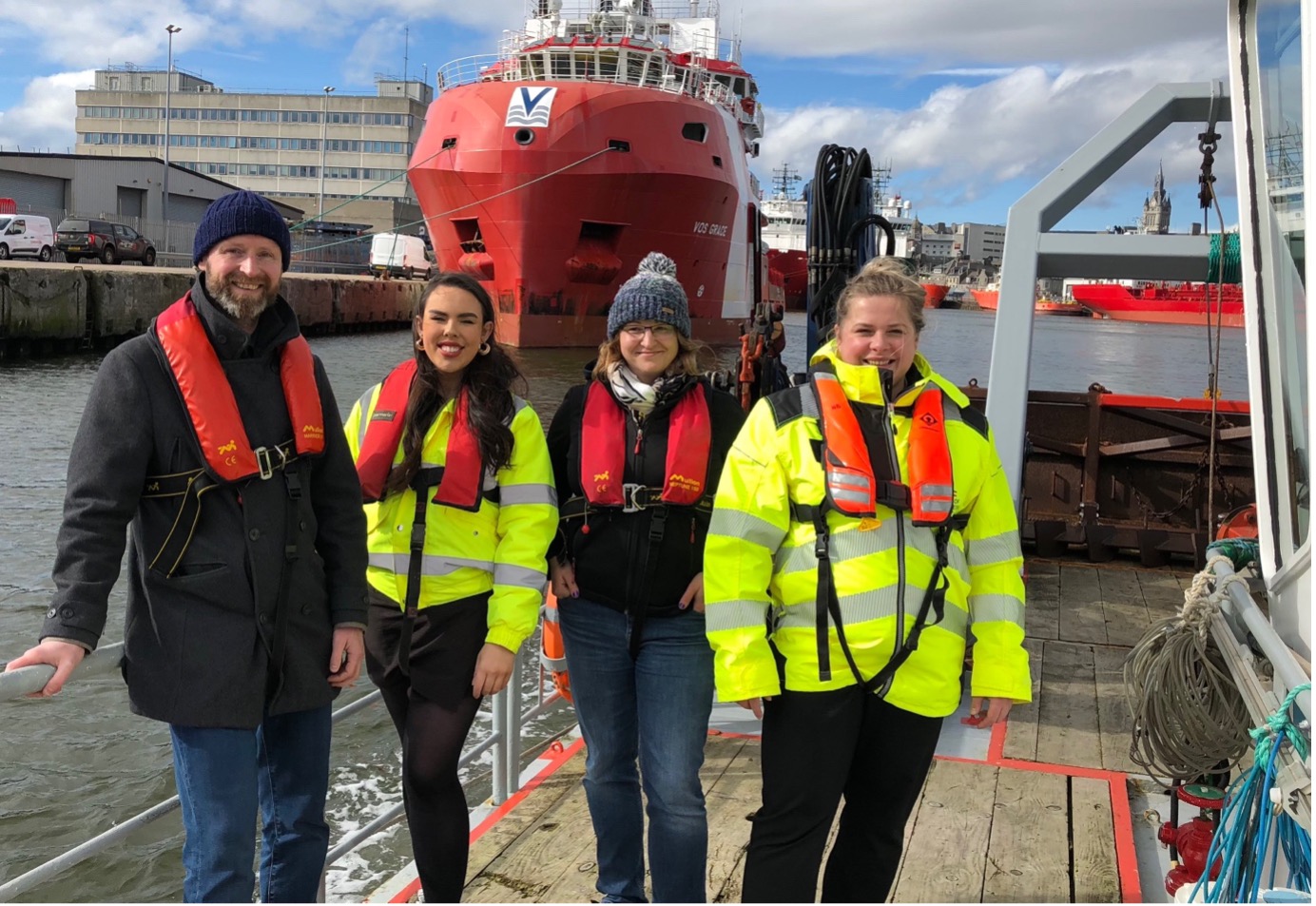With CCS set to play a major role in reaching net zero, and with shipping most likely playing a key role in that, we’ve been busy in the early part of 2024 speaking to different audiences about the work that we do in the maritime sector.
The EverLoNG project
Since 2021, we’ve been involved in EverLoNG, an ERA-NET Accelerating CCS Technologies (ACT3) co-funded 3-year international research project that aims to encourage the uptake of ship-based carbon capture (SBCC) by demonstrating its use on board LNG-fuelled ships and moving it closer to market readiness.
Alongside, alternative fuels such as hydrogen and ammonia, SBCC is one potentially low-cost solution being explored to decarbonise the maritime sector, which still creates around 3% of global CO2 emissions and that has pledged to reach net zero by 2050.
SCCS leads on knowledge exchange and dissemination and plays a key role in assessing the full chain implications of onboard CO2 capture and CO2 transport by ship in general.
In the early months of 2024, we took EverLoNG on the road. As the project enters its final year, such events offer an important route to keeping audiences up to date with progress and helping to disseminate and promote recent results and activity.
DeCarbScotland (February 2024, Edinburgh)
First up saw us invited to participate in the annual DeCarbScotland conference, run by NECCUS, which brings industry, government and other stakeholders together and is focused on industrial decarbonisation. As part of the session The Maritime Opportunity – Ports & Shipping, Dr Erika Palfi, SCCS Scientific Research Officer, presented an overview of the EverLoNG project, now into its 3rd year, where she highlighted the ongoing, pioneering onboard capture demonstration campaign, the results from which would soon (at the time) be publicly available. This generated considerable interest, leading to enquiries from private commercial project developers and invites to provide further information.
University of Strathclyde, Society of Naval Architecture and Marine Engineering (SNAME) 7th Annual Glasgow Symposium (February 2024, Glasgow)
One such follow-on invite came from the University of Strathclyde’s Society of Naval Architecture and Marine Engineering (SNAME) to speak at its 7th Annual Glasgow Symposium. Richard L Stevenson, SCCS Project & Research Analyst and EverLoNG project lead for SCCS, presented this time and was able to offer a sneak peek at the results from the recently-completed 1st capture campaign, which revealed that capture rates of up to 85% are possible. Delegates were excited and interested to see the progress that EverLoNG had made in deploying and testing the prototype capture unit, and were keen to monitor future activity closely. Other talks also covered SBCC, which presented a good opportunity to compare notes and share knowledge.
EverLoNG presentation at the 7th Annual Glasgow SNAME Symposium, image credit: SNAME
Port of Aberdeen (March 2024, Aberdeen)
We were also invited by the Port of Aberdeen, who wanted to know more about the project and to discuss decarbonisation of the maritime sector and ports in general. Aberdeen is Scotland’s largest berthage port and it has ambitious plans to reach net zero by 2040, covering emissions under all scopes 1-3 and considering alternative fuels such as hydrogen and methanol. Lots of technical questions were fielded about SBCC and CO2 handling requirements at port, with discussion also touching on solutions – including CCUS - for decarbonising the large number of vessels that utilise the port throughout the year.
And, of course, the visit was only complete once we’d enjoyed a tour of the port aboard a renewable HVO (Hydrotreated Vegetable Oil)-fuelled vessel.
Thank you to NECCUS, the University of Strathclyde and the Port of Aberdeen for their hospitality. Please get in touch if you would like to know more about the EverLoNG project.
Title image: EverLoNG partners SCCS enjoying a tour of the Port of Aberdeen. Credit: SCCS


